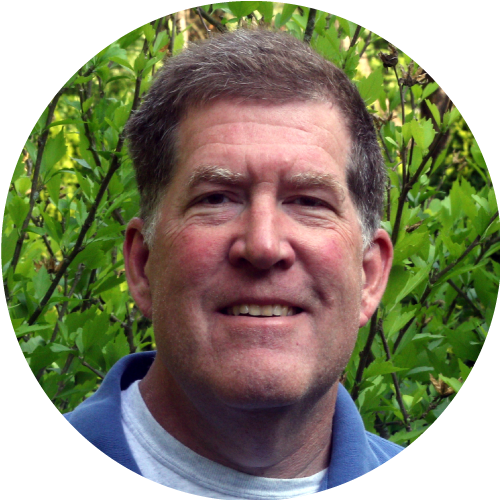Demystifying Program

Demystifying: Quantum
Sunday, 20 July: 09:00 – 17:00
Quantum mechanics is one of the most successful theories in the history of physics, but is also infamous for its “weird” and “spooky” aspects. Concepts like the dual particle and wave nature of light and matter and puzzles like Schrodinger’s Cat and the nature of quantum measurement continue to confound professional physicists and philosophers a century after the theory was first introduced. This gives the field an aura of mystery that can make it intimidating for scientists and engineers from other fields to approach.
In spite of its notorious weirdness, quantum physics is arguably the most precisely tested theory in the history of science, and plays a key role in metrology and sensing technologies that are widely used in engineering, life sciences, and industry. This starts with “quantum 1.0” technologies like lasers and transistors, whose operating principles are rooted in quantum phenomena but are essentially classical in practice, but increasingly involves “quantum 2.0” technologies that inherently rely on quantum phenomena like the particle nature of light and the wave nature of matter.
Demystifying: Quantum – presented by Optica – aims to make the infamously puzzling subject of quantum physics more approachable for scientists and engineers from other fields by introducing the key concepts and vocabulary of quantum mechanics, and explaining how they find applications in next-generation measurement technologies.
Program
The morning session will introduce the core ideas of quantum mechanics, starting with its origins in the early 20th century and its early experimental successes and technological applications. The second session will dive deeper into the modern synthesis of quantum ideas and experiments that demonstrate the quantum nature of reality. These combine in the notion of “qubits” that store information in a way that goes beyond classical 0 and 1, and are essential for both sensors based on single quantum systems and quantum computers using large numbers of qubits for information processing.
The afternoon sessions will look at three specific areas of applications for quantum metrology. The first will look at quantum timekeeping using atomic clocks, and applications to navigation and geodesy. The second will look at quantum sensors of magnetic fields, which find applications in both industry and medicine. The final session will look at the use of quantum 2.0 technology to enable precision spectroscopy for remote environmental sensing and monitoring.
Schedule |
Sunday, |
|---|---|
Part One:
|
|
| Quantum 1.0: Origin and basic elements of quantum physics, applications in lasers and transistors | 09:00 - 10:20 |
| Quantum 2.0: Single photons, phase sensitivity, entanglement and superposition, qubits and quantum information | 10:30 - 11:50 |
Part Two:
|
|
| Quantum Clocks: Role of quantum 1.0 in state-of-the-art atomic clocks, quantum 2.0 in next-generation timekeeping | 14:00 - 14:45 |
| Quantum Magnetometry: Using quantum technology to make magnetic sensors with applications in industry and life sciences | 15:00 - 15:45 |
| The Quantum Environment: Advanced techniques for environmental sensing and monitoring | 16:00 - 16:45 |
Audience
Scientists and engineers from academia or industry with limited or no prior experience with quantum mechanics who want to better understand these emerging technologies.
Prerequisites
There are no strict prerequisites for the attendees.
Learning Objectives
- Identify the essential concepts and vocabulary needed to understand the jump from "quantum 1.0" (lasers, transistors) to "quantum 2.0" (superposition, entanglement, single particle detection and phase sensitivity)
- Describe the role of quantum 2.0 in atomic clocks, and its potential role in GPS, navigation, and geodesy
- Explain the role of quantum 2.0 in magnetometry, including applications to biological systems
- Discuss the role of quantum 2.0 technologies in environmental sensing and monitoring
- Debate the potential for quantum 2.0 and metrology in the search for exotic physics
Instructor

Chad Orzel
Union College, USA
About the Speaker
Chad Orzel the Gordon Gould Professor and Chair of the Department of Physics and Astronomy at Union College in Schenectady, NY, and the author of five books explaining science for non-scientists: How to Teach Quantum Physics to Your Dog (Scribner, 2009) and How to Teach Relativity to Your Dog (Basic, 2012), which explain modern physics through imaginary conversations with Emmy, his German shepherd; Eureka: Discovering Your Inner Scientist (Basic, 2014), on the role of scientific thinking in everyday life; Breakfast with Einstein: The Exotic Physics of an Ordinary Morning (BenBella/ Oneworld 2018), and his latest, A Brief History of Timekeeping (BenBella/Oneworld 2022), which covers the last several thousand years of the science and technology of tracking the passage of time. He has a BA in Physics from Williams College and a Ph.D. in Chemical Physics from the University of Maryland, College Park, where he did his thesis research on collisions of laser-cooled atoms at the National Institute of Standards and Technology in the lab of Bill Phillips, who shared the 1997 Nobel Prize in physics (not for anything Chad did, but it was a fun time to be in that group). He has been blogging about science since 2002, on his own site, at scienceblogs.com, at Forbes, and on Substack. In 2021, he was named a Fellow of the American Physical Society for his work on public communication of science. He lives in Niskayuna, NY with his wife Kate Nepveu, their two children, and their new dog Charlie the pupper.
About the Optica Demystifying Series
The Optica Demystifying series offers introductions to the topics transforming science and engineering today. The objective is to lower the barriers to entry and get you started in the most exciting tools, techniques and areas of research in optics and photonics. Whether you are just starting your career or well along your path, if you are looking for new opportunities, the leading researchers and great teachers in the Optica Demystifying series will help you take that important first step. Look for Demystifying offerings at your next Optica Event.
